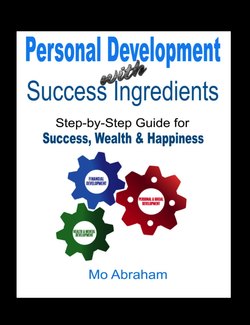Читать книгу Personal Development With Success Ingredients - Mo Abraham - Страница 203
На сайте Литреса книга снята с продажи.
Stress Happens to Everyone
ОглавлениеThere are no groups of people or any single individuals who can avoid stress. Stress doesn’t fit neatly into any one category like a one-size-fits-all event. There are different levels of stress that will vary, depending on the person who’s dealing with it.
There are also different reasons and different times for stress to occur. You might experience more stress at a certain time of the year than other people do. However, stress does fall under the heading for six basic types:
1.Encounter Stress
This has to do with the relationships in your life. This covers your intimate relationships, your work relationships and even stranger or acquaintance relationships. This type of stress can be low or high level. When you experience this type of stress, it doesn’t mean that you’ve actually been in a situation with someone and it’s caused you to feel stress.
You can worry and fear about an encounter before the actual encounter even happens. An example of this would be an upcoming meeting with your boss. He’s requested to see you and you have no idea what it’s about. So you begin to stress and create scenarios in your mind about what it could be. You can ‘what if’ yourself into imagining that he’s going to fire you. From there, your mind can spring to how you’re going to pay your bills and how you’ll find another job. The type of life that you have can often determine whether you have a high stress level due to encounter stress. People who work in jobs where there’s a great deal of emotions (such as in a hospice care group) might have a higher rate of encounter stress than other people would normally have.
2.Time Stress
This can occur when you’re feeling overwhelmed with everything that you have to get done – so you fret that you don’t have enough time. You ‘what if’ that you’re not going to get everything done and your stress level rises. An example of this would be having to be somewhere for an important meeting that you absolutely can’t miss and things crop up to put you behind. Sometimes people will engage in time stress before there’s even an issue. This ‘what if’ worry can make them feel anxious and depressed because they worry how it will affect their future. The panic it causes can result in even more stressful situations to occur.
3.Situational Stress
This is what happens when you’re in a situation that causes immediate stress. An example of this can be a car accident, a child becoming ill or a job loss. In situational stress, it’s the situation that causes the worrying and the emotions that go along with it. This kind of stress can be short or long term.
4.Anticipatory Stress
This is stress that you get because you’re anticipating something that’s coming your way. This might be having to give a speech or wanting to ask for a raise or loan payment or rent is due. It can also be about something that’s not even on the horizon. It’s a fear that the other shoe is going to drop. This type of stress is the kind that has the most ‘what if’ worry involved with it because it’s focused on things that haven’t even happened – and may never happen! And when the things that you worried about do come to past, they often don’t look anywhere as frightening or terrible as what you thought they’d be. The levels of stress are chronic, acute and episodic acute stress.
5.Chronic Stress
With this level, you would feel this stress on a long-term basis. This might be something like being stuck in a job that you hate because it drains you emotionally. Or it could be something like being in a relationship with someone who isn’t healthy for you to be around. Chronic stress can often make you feel like you’re stuck – like life will never change or get better for you. You can feel a great deal of pressure. This can come from a financial setback such as losing a home to foreclosure. It can stem from a trauma. Chronic stress can cause people to view the world differently and learn to push down emotions in an effort to try not to think about what you’re dealing with.
6.Acute Stress
This level is what most people deal with - and it’s the best level of stress to have. This level of stress comes and goes fairly quickly. While there is pressure and fear sometimes associated with it, it doesn’t last. An episodic acute stress level means that there’s a constant hamster wheel of stress. It can feel like your life is on fast forward, like you’re part of the rat race and you can’t stop or everything would go haywire. People who end up with this level of stress experience it often because they haven’t learned to say no to demands on their time. They often focus on too many things at once. Their level of stress is easy to see in the way that they can never seem to relax and let things go.
